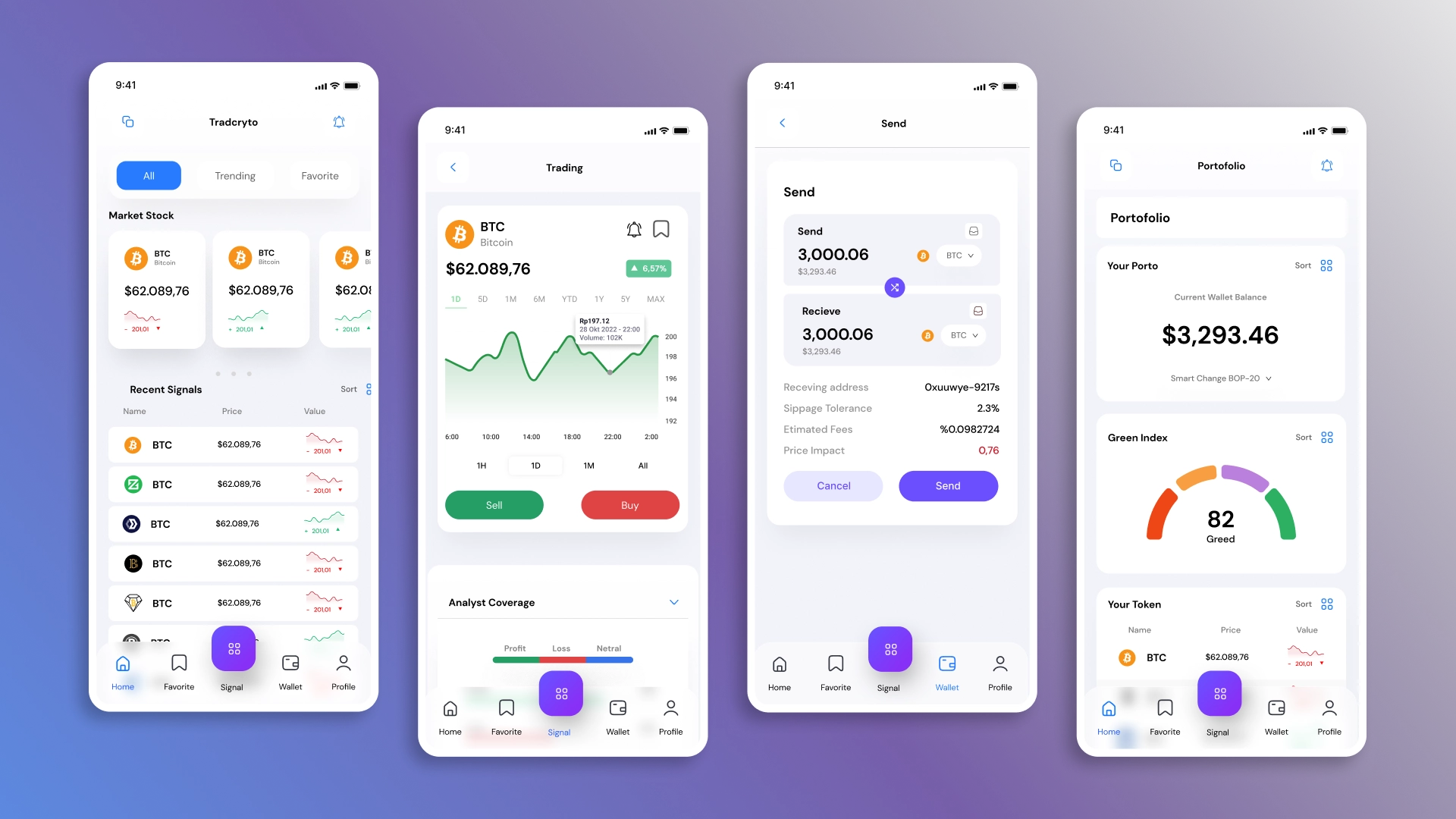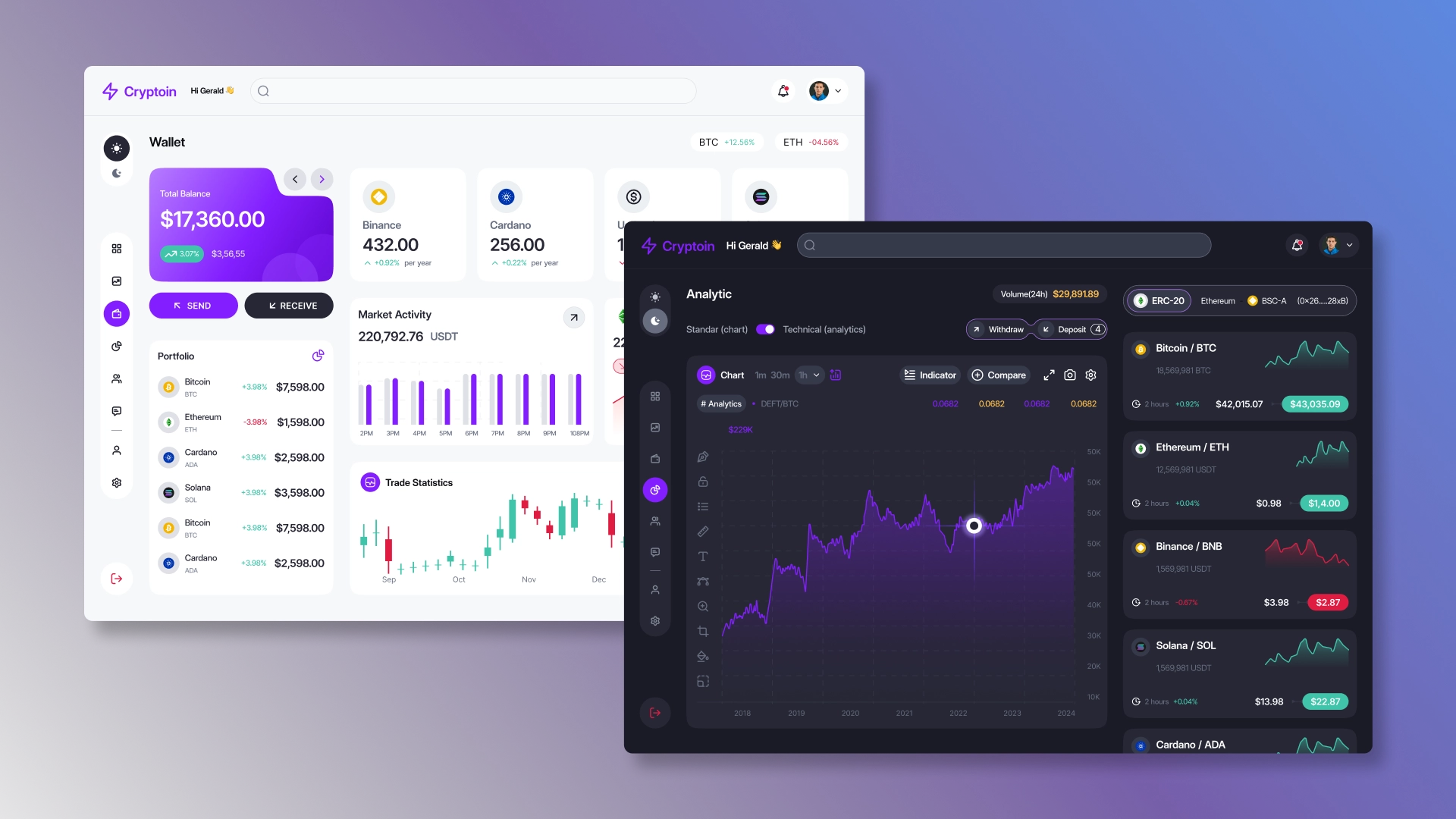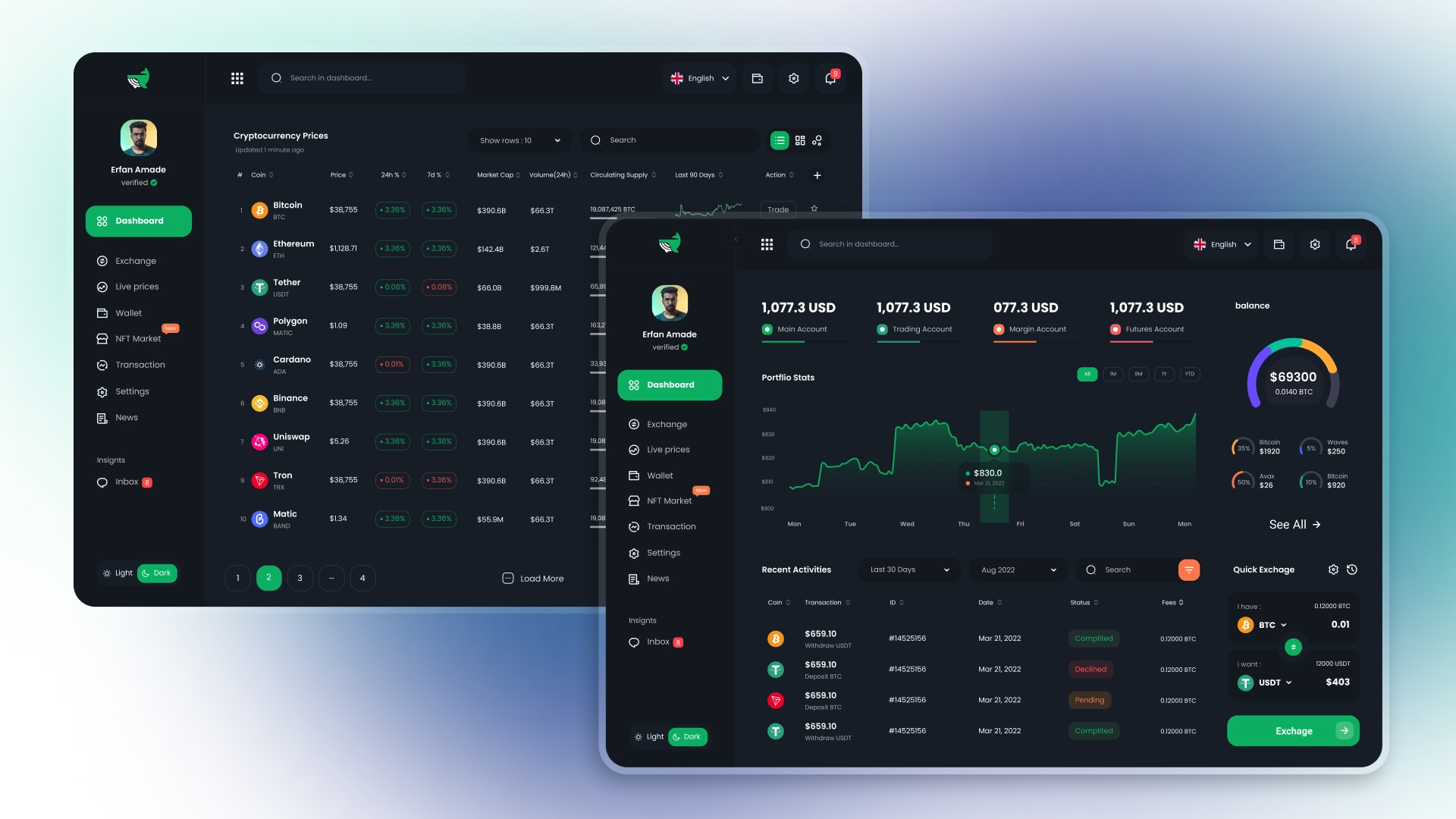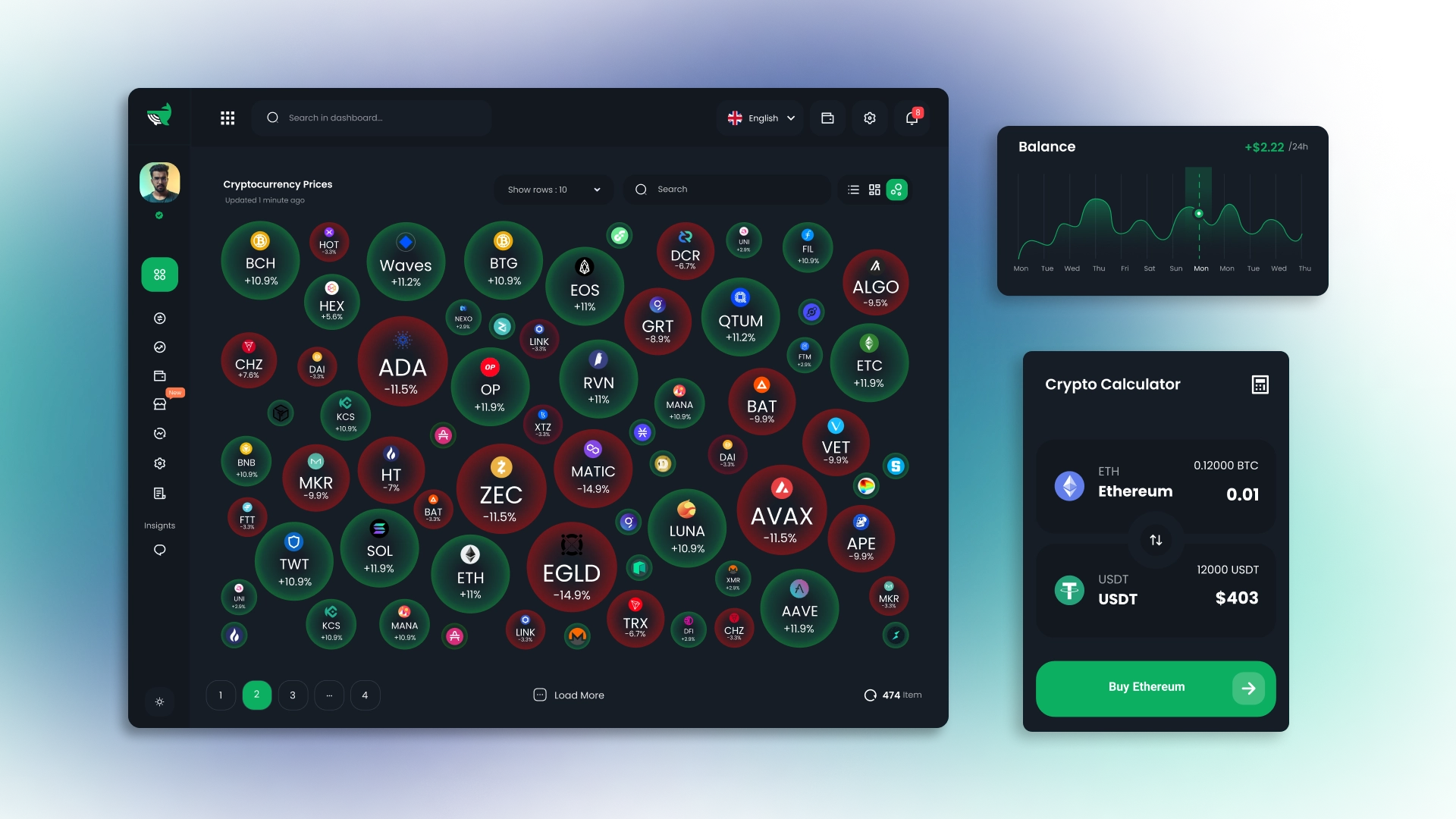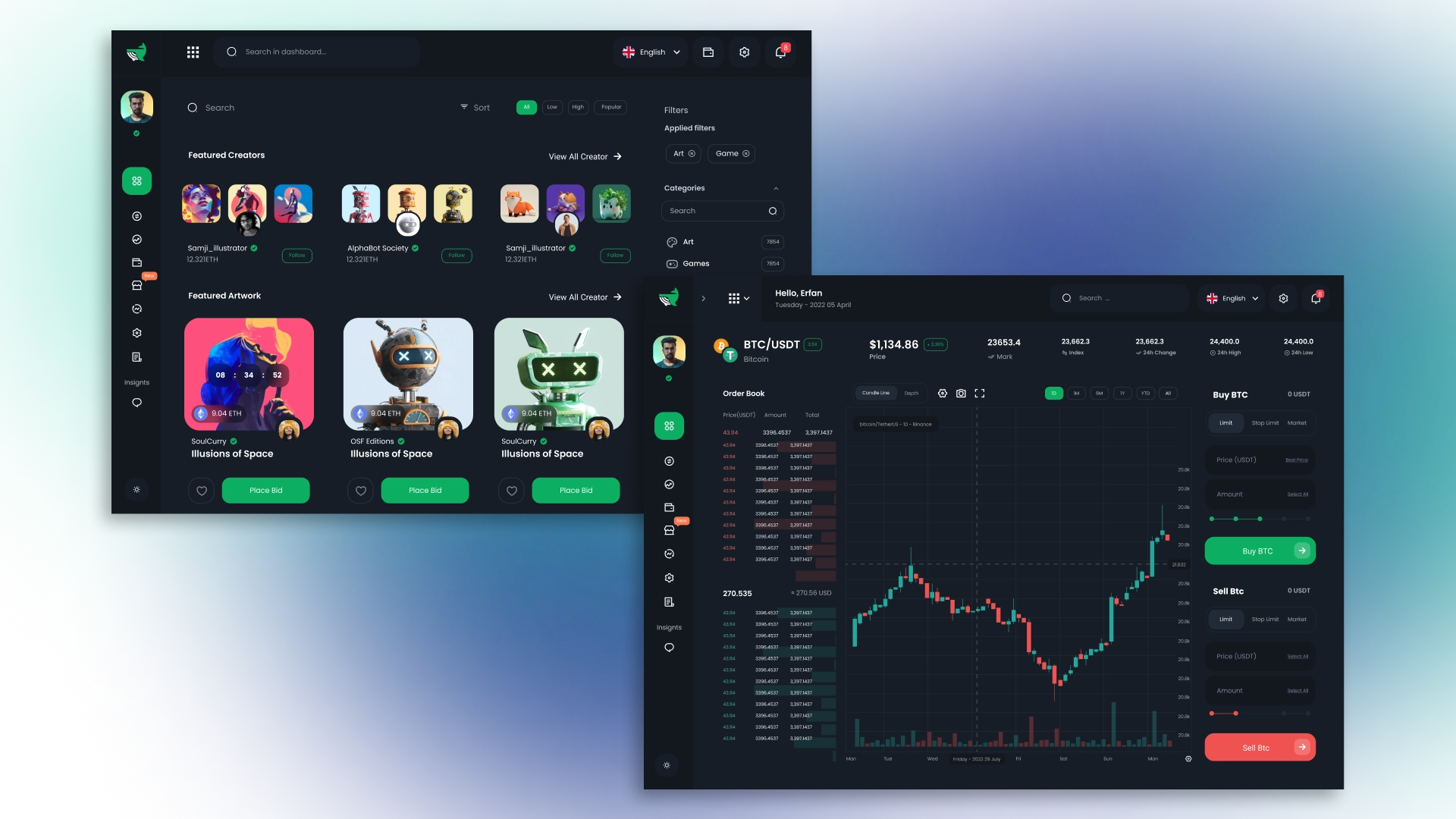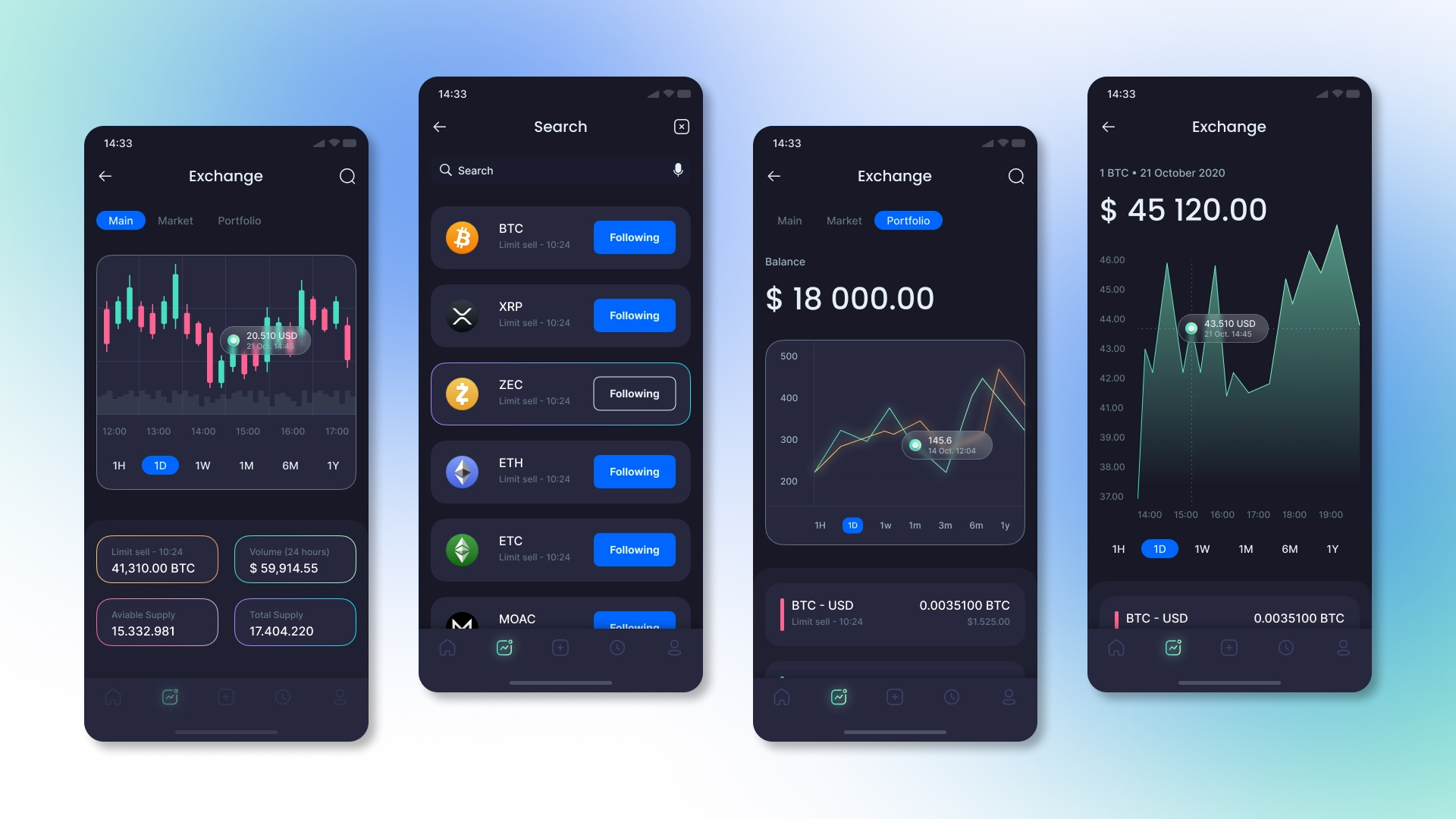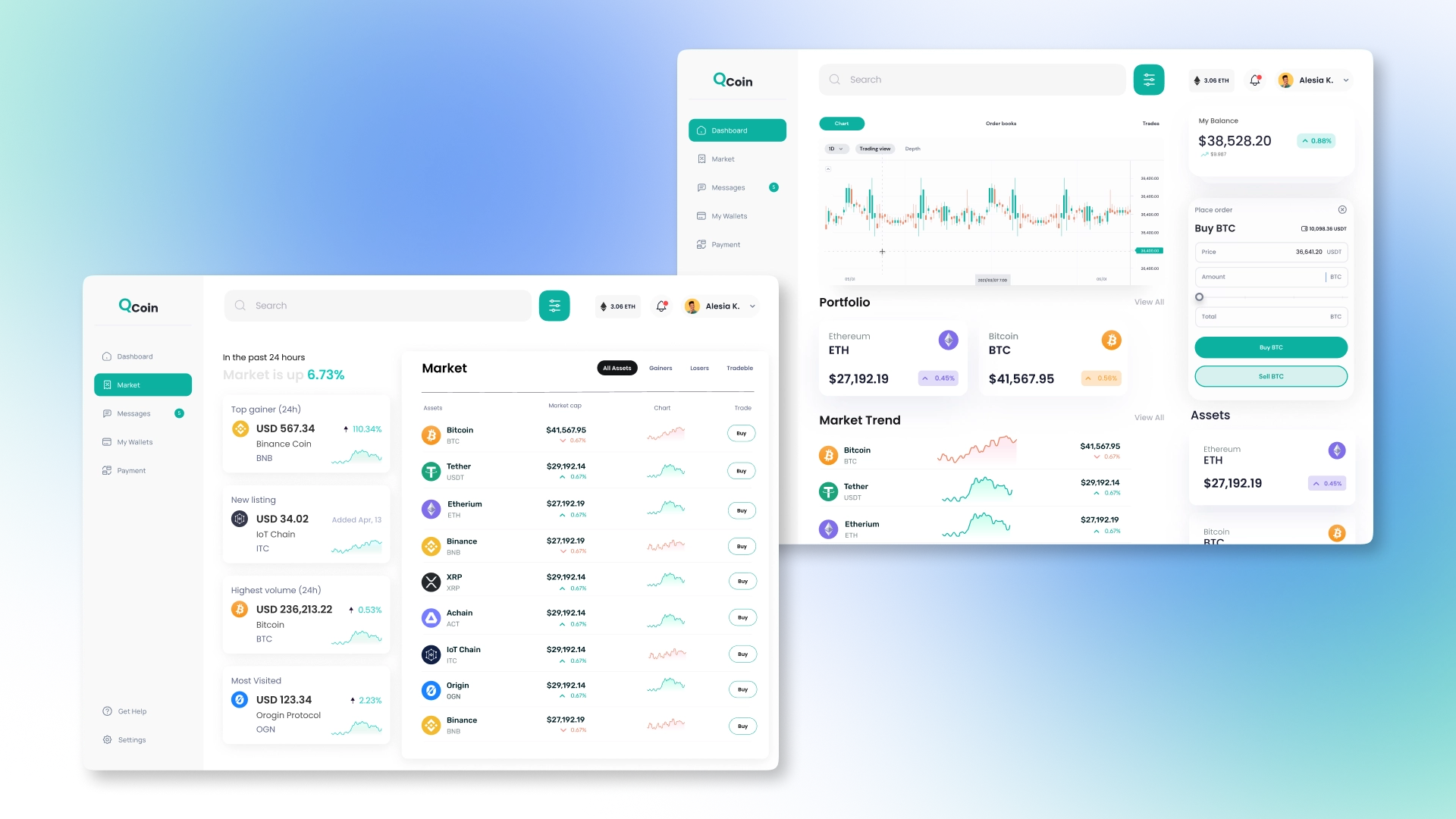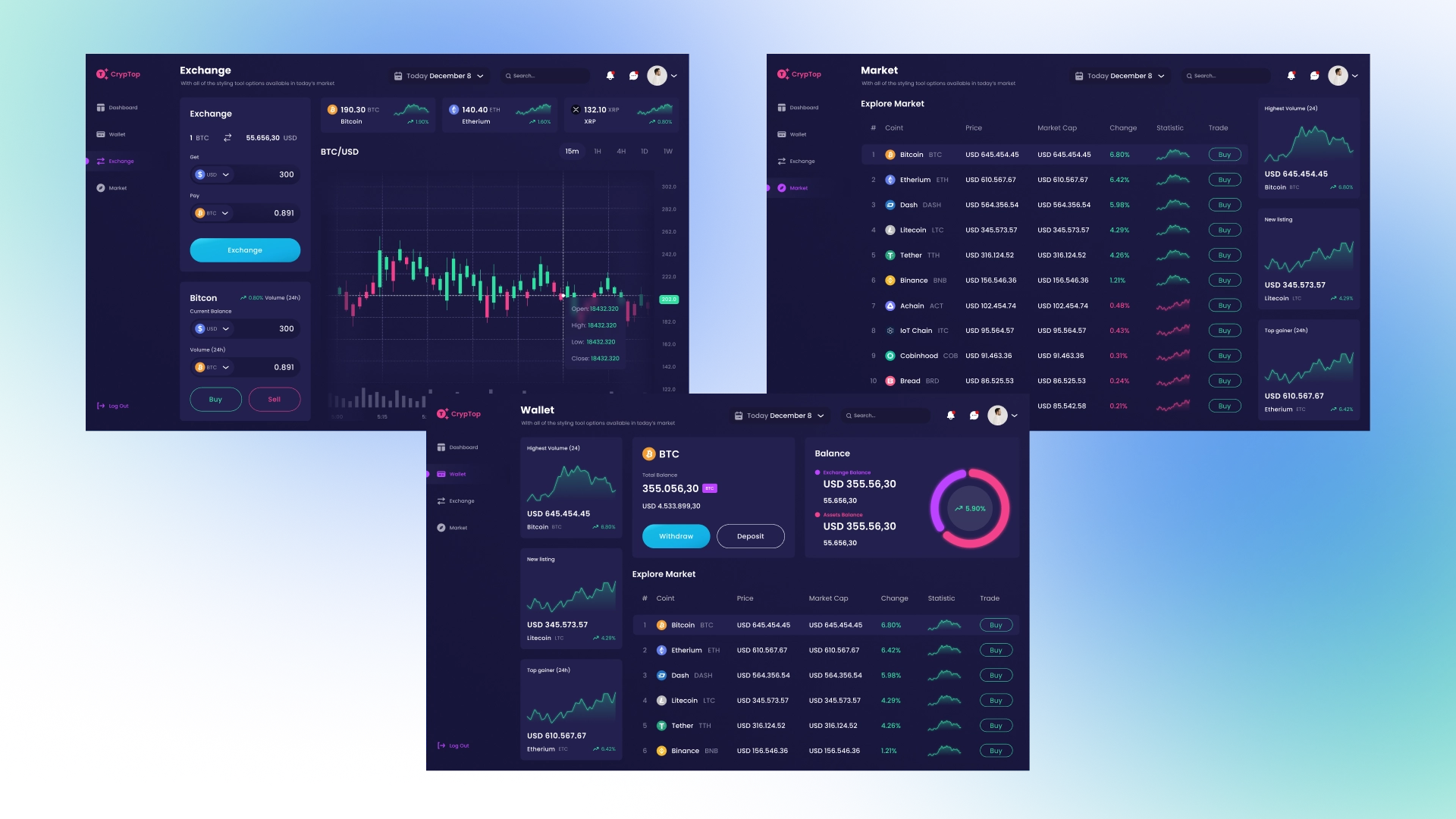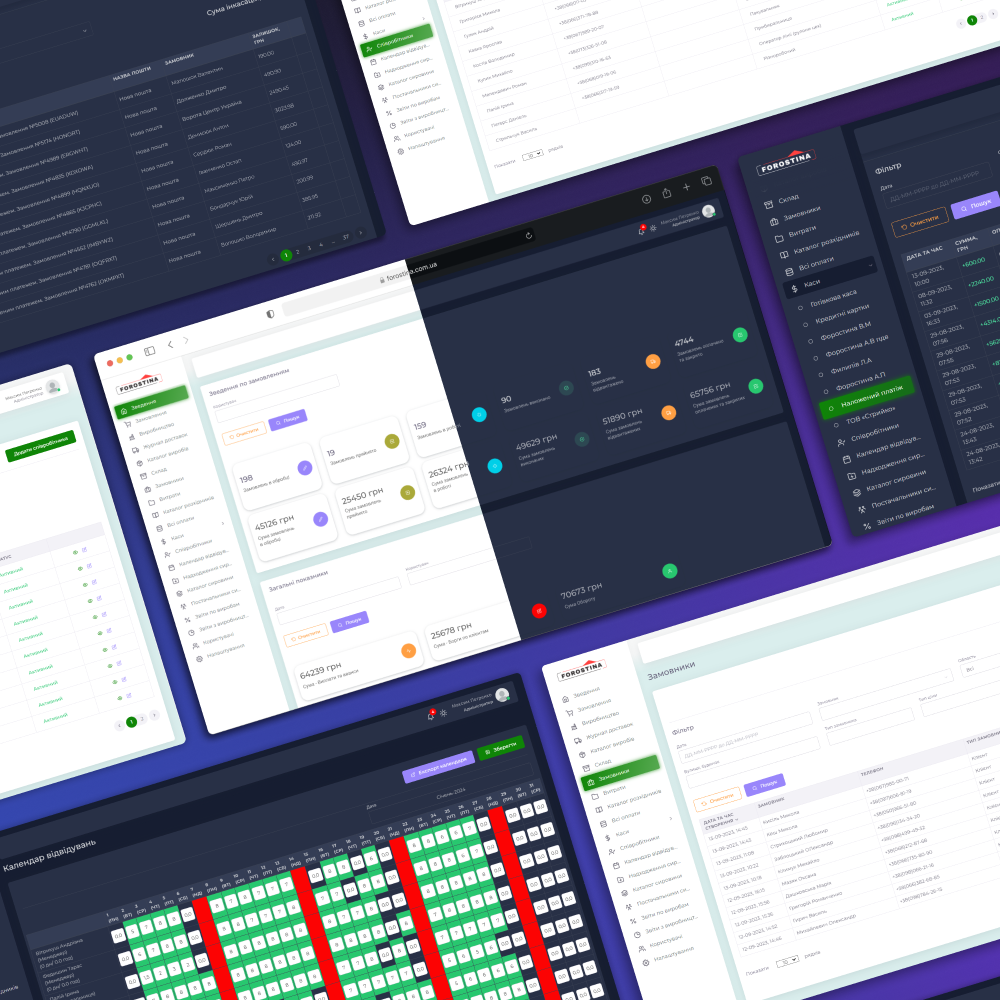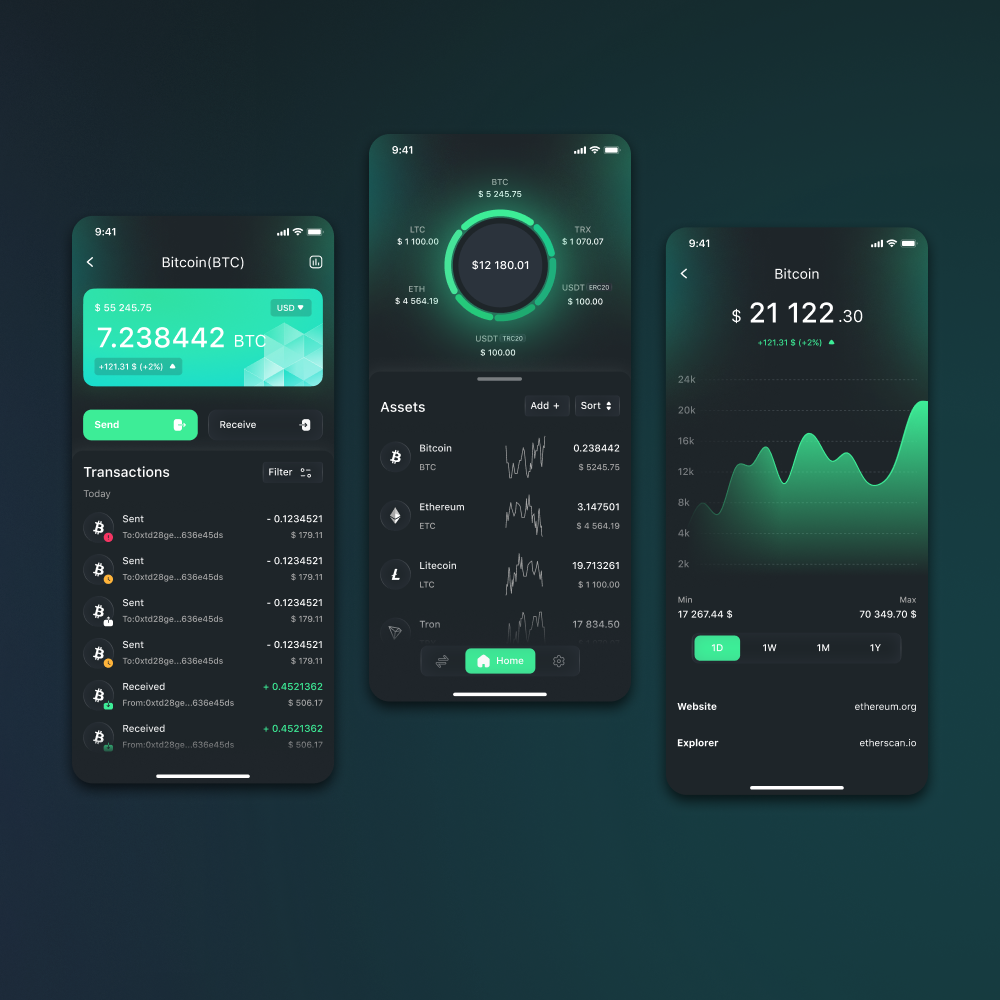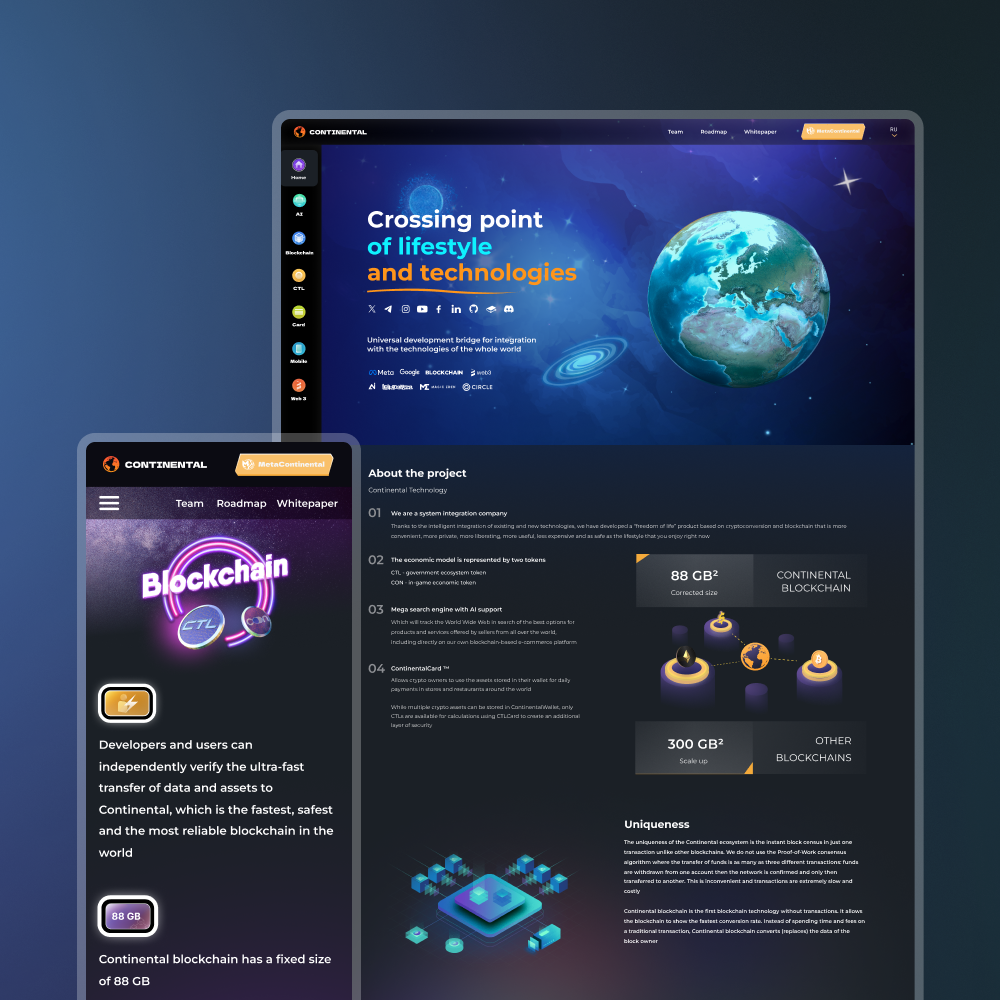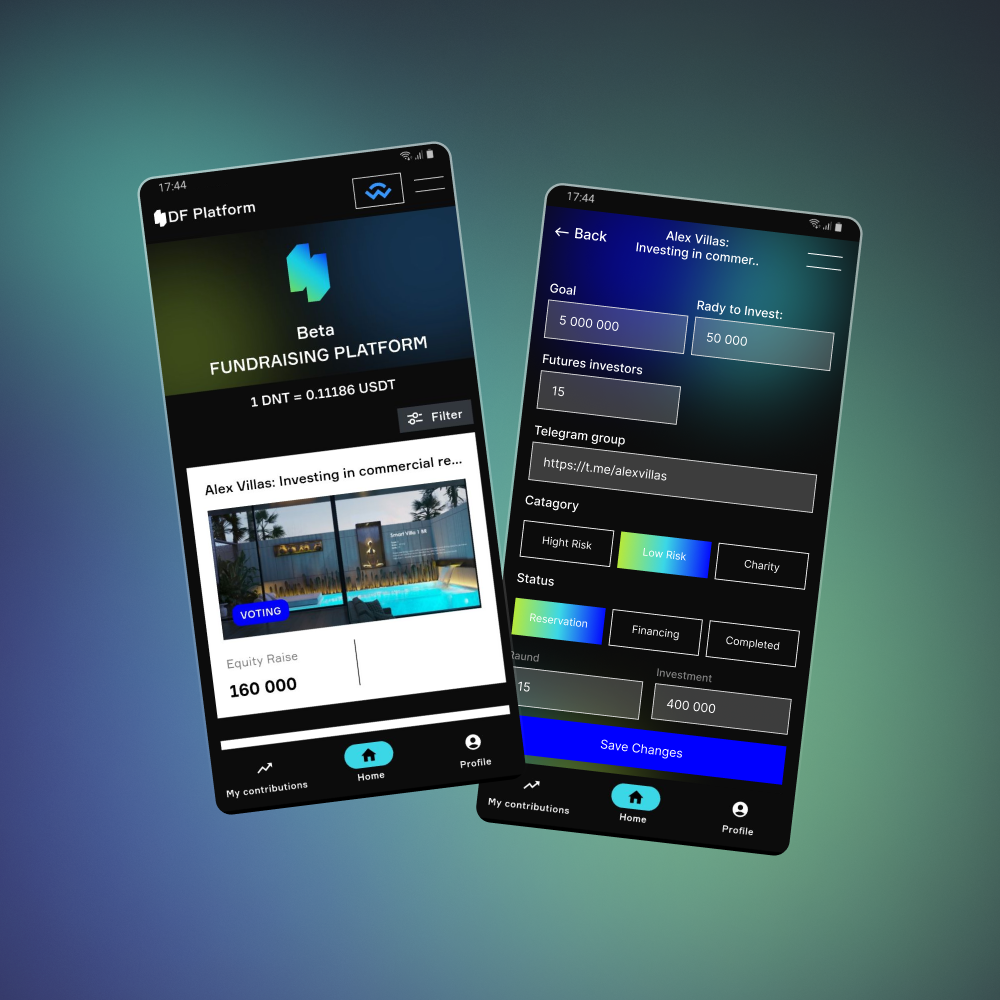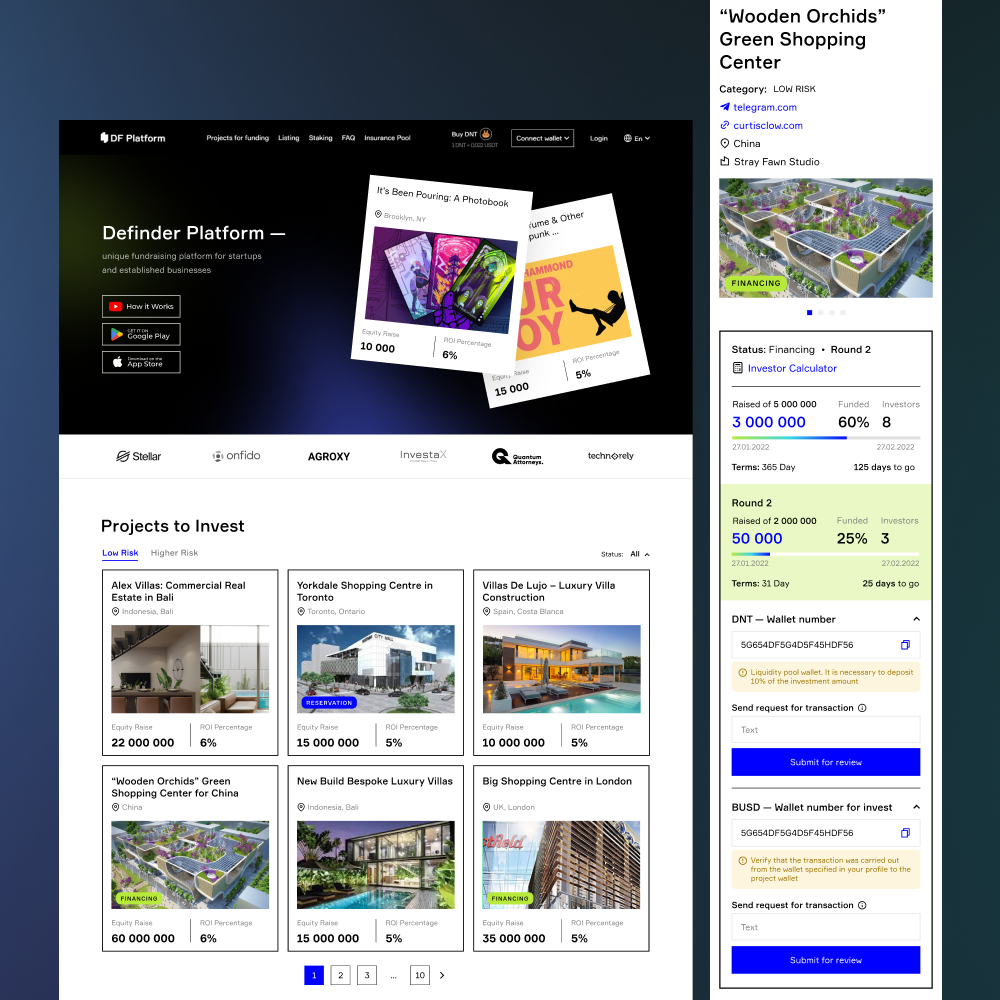








Blockchain
Blockchain is transforming processes in modern business, ensuring transparency, security and immutability of data. The implementation of this technology allows companies to optimize operations, minimize the risk of fraud and increase trust from customers and partners. The main advantage of blockchain is its decentralized nature, which eliminates the need for intermediaries and reduces costs.
AVADA MEDIA is engaged in the creation of individual blockchain solutions. Our developments are cryptocurrency exchanges and exchangers, smart contracts, decentralized accounting systems, peer-to-peer platforms and other solutions for various business sectors.
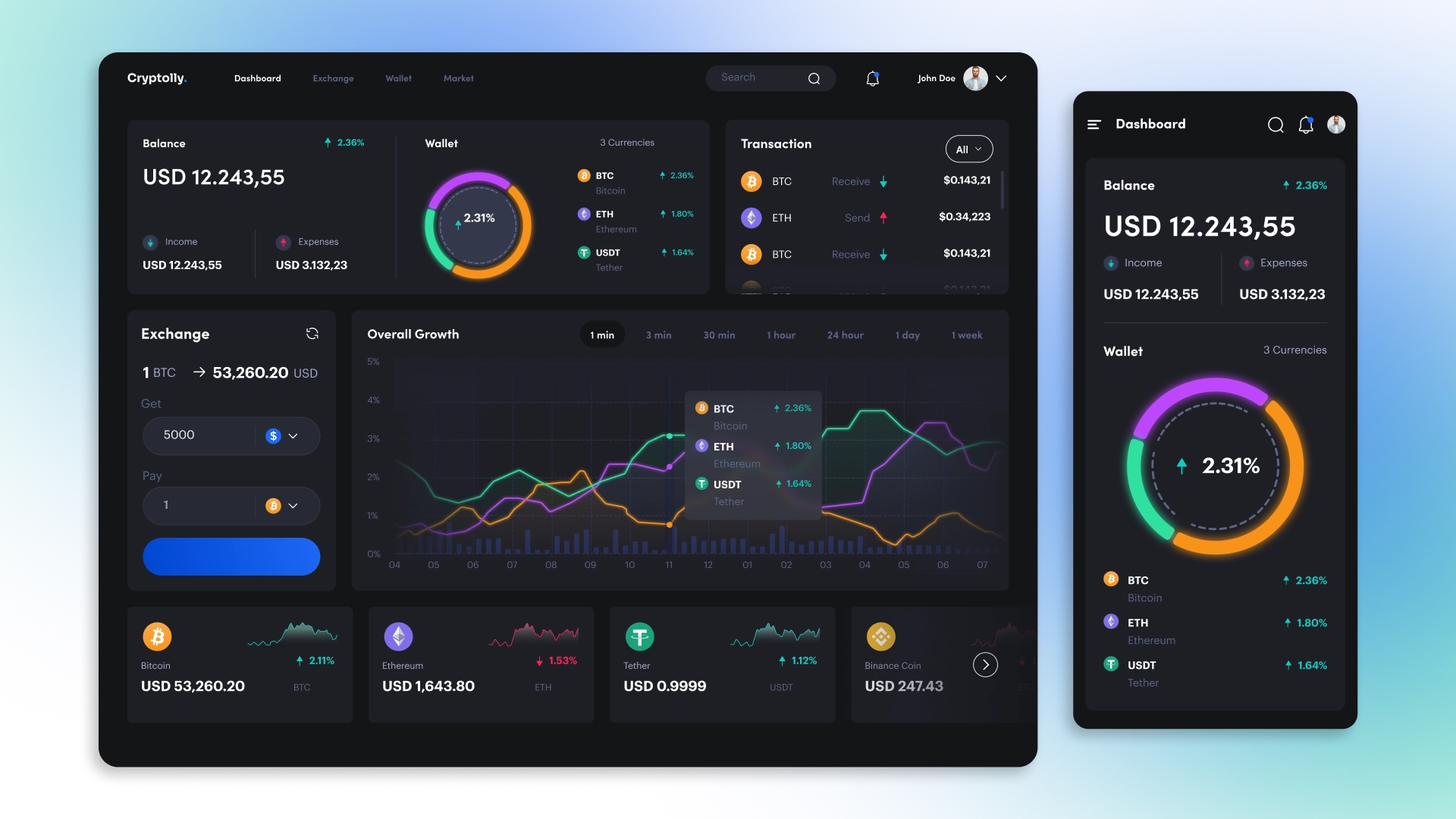
Basic principles, advantages and disadvantages of blockchain for business
Blockchain is a distributed network in which data is stored in chains of blocks protected by cryptography. Each block contains information about the previous one, making the system virtually invulnerable to data changes. Among the key advantages of blockchain for business are:
- Transparency - all network participants have access to a common version of the data, which eliminates the possibility of manipulation.
- Security – Data stored on the blockchain is protected by cryptography, making it difficult to hack.
- Immutability - once information is added to the blockchain, it cannot be changed without the consent of the majority of network participants.
- Efficiency – Blockchain eliminates intermediaries, speeding up processes and reducing costs.
- Automation - Smart contracts on the blockchain replace legal contracts and automate the execution of agreements, which reduces bureaucracy and eliminates risks.
- Traceability – Blockchain allows for the tracking of the origin of goods and assets, improving supply chain management.
However, like any innovation, blockchain has its challenges that need to be taken into account when developing blockchain applications for business:
- High implementation costs - the development and integration of blockchain solutions requires specialists with specialized knowledge, which can affect the speed and cost of software development.
- Scalability - As the number of transactions increases, the network may experience latency and increased costs.
- Complexity of regulation – legislative norms for blockchain technologies are only just being formed, which creates uncertainty for businesses.
How do business sectors use blockchain?
Blockchain technology has already found application in many areas of business. Let's look at some practical examples of its use in various industries.
Energy
One of the most common use cases for blockchain in the energy sector is the development of peer-to-peer trading platforms for buying and selling energy commodities, which make renewable energy sources easier for a wider audience to access.
These platforms allow solar home owners to directly sell their excess electricity to other subscribers, without any third-party regulators. The process uses smart meters that automatically create transactions that are recorded on the blockchain, which ensures transparency and makes the trading process more efficient.
In addition, blockchain supports crowdfunding initiatives in the energy sector, allowing users to sponsor the installation of solar panels in areas with limited access to electricity. In return, sponsors can receive rent for the use of these panels, which stimulates the development of green energy in hard-to-reach places.
Finance
In the financial industry, the integration of blockchain technologies helps manage payments, accounts, and asset trading. For example, the American holding company JPMorgan Chase has developed its own blockchain platform called Quorum, which is used to conduct secure and fast interbank payments. With Quorum, the company was able to reduce the time it takes to conduct international transactions from several days to several minutes, significantly reducing operating costs and increasing the transparency of all financial transactions.
Additionally, in the financial sector, blockchain technology can also help automate the process of reconciling transactions, eliminating errors associated with manual data processing.
Multimedia and entertainment
In the media and entertainment industry, blockchain is being used to manage copyrights and ensure fair compensation for content creators.
For example, Spotify is using blockchain to improve the process of distributing revenue among musicians, producers, and other participants in the music industry. The technology allows Spotify to accurately track how many times each track has been played and distribute revenue based on that data. This helps eliminate issues related to inaccurate play counts and ensures a fairer and more transparent distribution of funds.
Logistics
In logistics, blockchain helps improve the tracking of goods and provides transparency in supply chains. One practical example of the technology’s application is the TradeLens blockchain platform, developed by the world’s largest carrier Maersk, with the assistance of IBM.
TradeLens enables everyone in the supply chain, from manufacturers to end recipients, to track the movement of goods in real time, reducing the likelihood of errors and fraud, lowering administrative costs, and speeding up document processing. This has enabled Maersk to significantly improve the efficiency of its logistics operations.
Our expertise in developing blockchain solutions
At AVADA MEDIA, we offer businesses the development of customized blockchain-based software that will help your company increase the accuracy and transparency of operations, as well as improve interaction with customers and partners. In particular, we can implement the following digital solutions for your company:
- Smart contracts. Cryptographic scripts that enable automation and secure execution of peer-to-peer transactions without the involvement of third parties.
- Cryptocurrency exchanges. Digital asset trading platforms that provide a secure and reliable environment for trading digital assets. Our solutions have deep functionality, allow you to integrate various payment methods and support a large number of currencies.
- Crypto exchangers. Services for instant and secure exchange of one cryptocurrency for another or for fiat money. Unlike crypto exchanges, exchangers do not offer complex trading functions and tools, which makes them convenient for a wide range of users, but not for professional trading.
- Cryptocurrency wallets. We create mobile, desktop and web wallets that allow users to comfortably and securely interact with blockchain networks - store digital currency, send and receive payments.
- Decentralized applications (dApps). We develop applications running on blockchain networks that rely on smart contracts instead of a centralized system. DApps can be used in GameFi projects, finance, social networks and many other business sectors.
- Mining platforms. Specialized services for managing cryptocurrency mining, which allow you to efficiently distribute computing resources, manage mining pools and optimize energy costs. We can also integrate analytical tools to monitor user performance and profits.
- ICO Websites. We develop ICO websites that help attract investment in new blockchain projects. Our solutions include convenient control panels for token issuers, integration with various payment systems, and functionality for compliance with legal requirements.
Technologies we use to develop blockchain projects
For the technical implementation of reliable and functional blockchain-based solutions, we use a proven stack of technologies:
- Frameworks for developing private blockchains : Hyperledger, Quorum.
- Smart contract programming languages : Solidity, Rust.
- Open blockchains : Ethereum, Tron or Binance Smart Chain.
- For server development : Python, PHP, Java and their frameworks.
- For the client side : Vue.js, React.js.
Why choose AVADA MEDIA to implement blockchain in your business?
AVADA MEDIA develops modern blockchain-based software that opens up new opportunities to increase transparency, security and efficiency of operations in companies from various industries. We provide a full development cycle - from requirements analysis to integration of the ready-made solution into the business, thanks to which we can guarantee the reliability of the final product and its full compliance with your needs.
If you want to expand your company's capabilities using blockchain technology, contact our experts and let's start discussing your project.
-
What are the benefits of blockchain for business?
Blockchain enables companies to maintain transparent and immutable transaction records, which significantly reduces the risk of fraud and increases customer trust. It also enables automation of processes using smart contracts, which reduces operating costs, minimizes human error, and increases business efficiency.
-
How much does it cost to develop a Blockchain application?
The cost of developing blockchain applications depends on the technology stack, design complexity, integrations with other services and other factors. And since we approach budgeting individually, it is quite difficult to name an exact price without understanding the specifics of your tasks.
-
What tools do you use to develop blockchain applications?
The optimal technology stack depends on the goals and objectives of the project, so it is selected individually. Typically, development is built on open blockchains such as Ethereum, Tron or Binance Smart Chain, and smart contracts are programmed using the Solidity language.

















